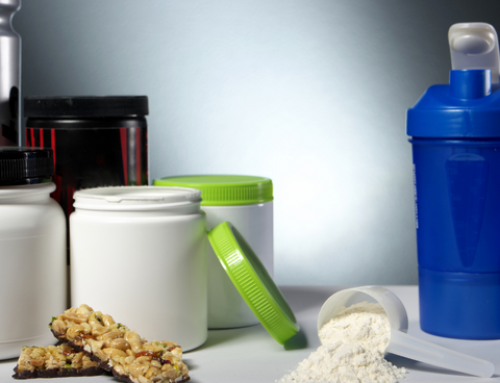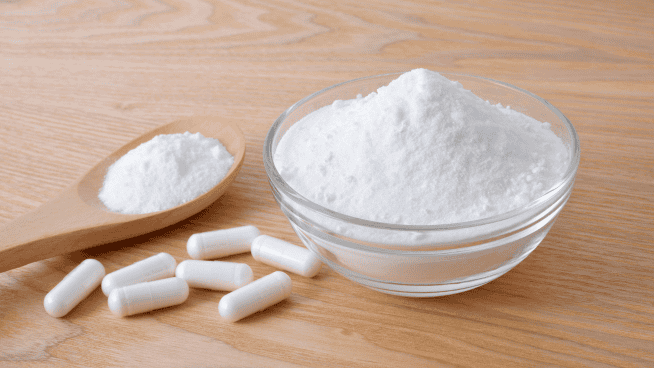Make Sure You’re Getting Enough Calcium
We need calcium for growth. From our adolescent years through our early 20s, our bones calcify to their thickest, strongest state. Healthy bones protect organs and allow muscles to grow stronger. Without adequate calcium, our muscles start breaking down bones to get the calcium they need, which depletes the body of this essential mineral. (Learn more about why calcium is important for athletic performance)
Most people get their calcium from dairy products, but what if you’re not fond of dairy or you’re lactose intolerant? One option is processed foods like breakfast cereal that are fortified with calcium. I know you’re thinking that processed foods aren’t good for you, and I agree 100 percent, but if you’re eating processed food, at least you’re getting your recommended daily value of calcium.
Health food stores offer calcium in both pill and chewable forms. Just remember that you can overdose on calcium. A calcium overdose (also known as hypercalcemia) often manifests itself in constipation, but it can also cause kidney stones and renal problems. If you’re considering a calcium supplement, first talk to your doctor and get a bone density test.
So what is a safe level of calcium consumption? The National Institutes of Health recommends that 14- to 18-year-olds consume 1,300 mg of calcium per day and that 19- to 50-year-olds take in around 1,000 milligrams per day. If you consume more than 2,500 mg per day, you’re putting yourself at risk for hypercalcemia.
Check the food you’re eating to make sure you’re getting enough calcium on a daily basis. Neglecting this aspect of your diet is one of the quickest ways to sabotage your performance.
Photo: anh-usa.org
RECOMMENDED FOR YOU
MOST POPULAR
Make Sure You’re Getting Enough Calcium
We need calcium for growth. From our adolescent years through our early 20s, our bones calcify to their thickest, strongest state. Healthy bones protect organs and allow muscles to grow stronger. Without adequate calcium, our muscles start breaking down bones to get the calcium they need, which depletes the body of this essential mineral. (Learn more about why calcium is important for athletic performance)
Most people get their calcium from dairy products, but what if you’re not fond of dairy or you’re lactose intolerant? One option is processed foods like breakfast cereal that are fortified with calcium. I know you’re thinking that processed foods aren’t good for you, and I agree 100 percent, but if you’re eating processed food, at least you’re getting your recommended daily value of calcium.
Health food stores offer calcium in both pill and chewable forms. Just remember that you can overdose on calcium. A calcium overdose (also known as hypercalcemia) often manifests itself in constipation, but it can also cause kidney stones and renal problems. If you’re considering a calcium supplement, first talk to your doctor and get a bone density test.
So what is a safe level of calcium consumption? The National Institutes of Health recommends that 14- to 18-year-olds consume 1,300 mg of calcium per day and that 19- to 50-year-olds take in around 1,000 milligrams per day. If you consume more than 2,500 mg per day, you’re putting yourself at risk for hypercalcemia.
Check the food you’re eating to make sure you’re getting enough calcium on a daily basis. Neglecting this aspect of your diet is one of the quickest ways to sabotage your performance.
Photo: anh-usa.org











